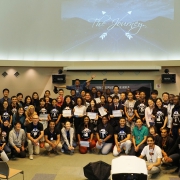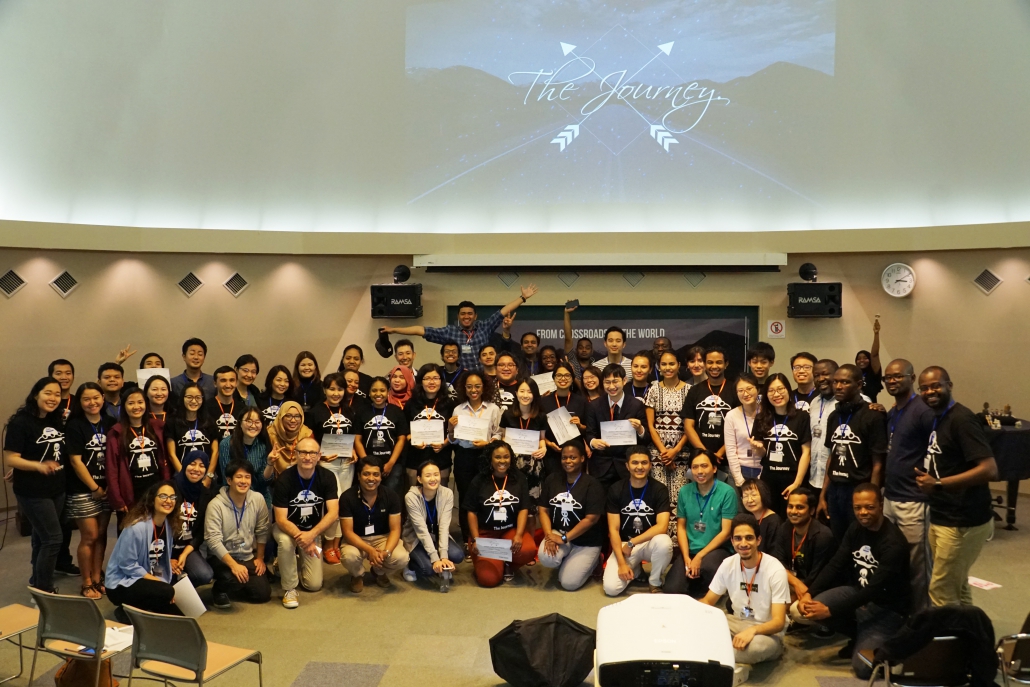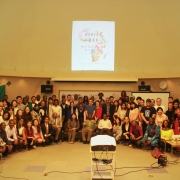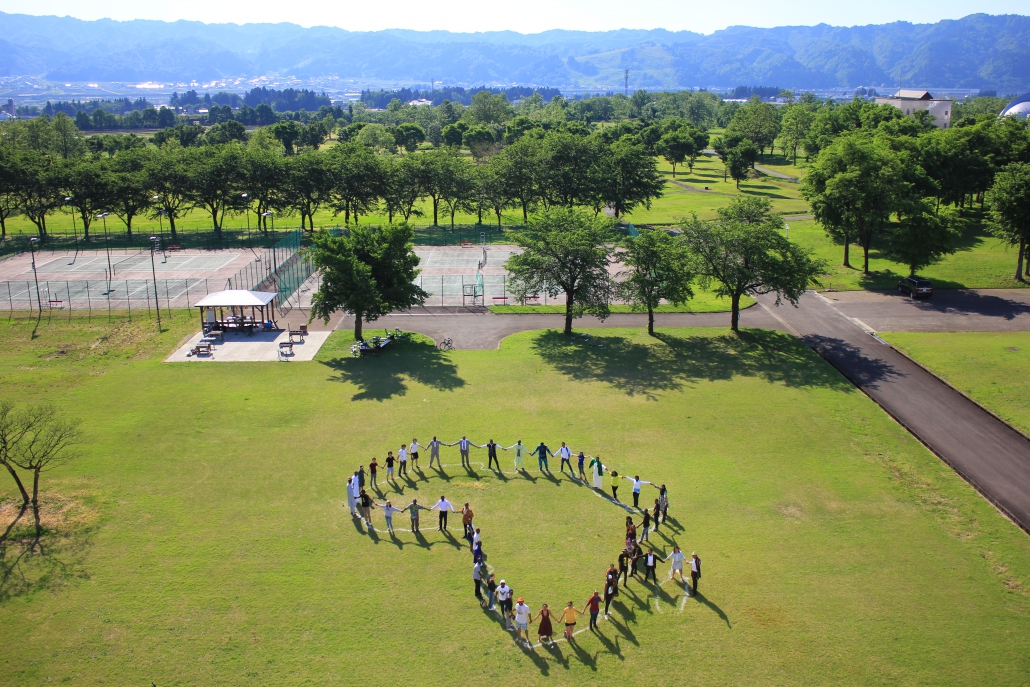News & Announcements
IUJ will hold its 2019 Graduation Ceremony on Saturday, June 22 at Koidego Cultural Hall
IUJ will hold its 2019 Graduation Ceremony on Saturday, June 22 at Koidego Cultural Hall in Uonuma city on the following schedule.
Date: Saturday, June 22, 2019
10:00-12:10 Conferment of Master’s Degree Certificate
Venue: Koidego Cultural Hall (Great Hall)
12:10-13:00 Celebration Party
Venue: Koidego Cultural hall (Public Square in front of Small Hall)
15:00-15:20 Class Tree Unveiling by Graduates
Venue: IUJ Alumni Forest (It may be cancelled if it rains.)
The event will be live-streamed on IUJ official YouTube channel at
https://www.youtube.com/c/TubeIUJ
=====
Contact:
Office of General Affairs
025-779-1111
=====
A special campus event “The Journey” was successfully held
On Saturday June 8th, IUJ hosted “The Journey”, a special campus event where six students shared their own life journeys with the audience. The presentations were moving and thought provoking, with each speaker bringing unique perspectives and experiences to the table.
Nguyên Thuy Duong
“Micro Moments that shape who we are”
Duong spoke about the idea of micro moments having the ability to alter who we are. Often, people assume that big life events are what shapes a person, but the significance of micro moments can’t be underestimated since they compound and accumulate. Micro moments also have the power to change someone else’s day – you may smile at someone when passing them by, hold a door open for someone, or give heavier weights a try when working out. Duong mentioned that all it takes is a fraction of a section to change a life, and she has noticed this in her own life – particularly when it comes to studying here in Japan. She spoke of her studies here at IUJ making her feel “fearless and visible.”
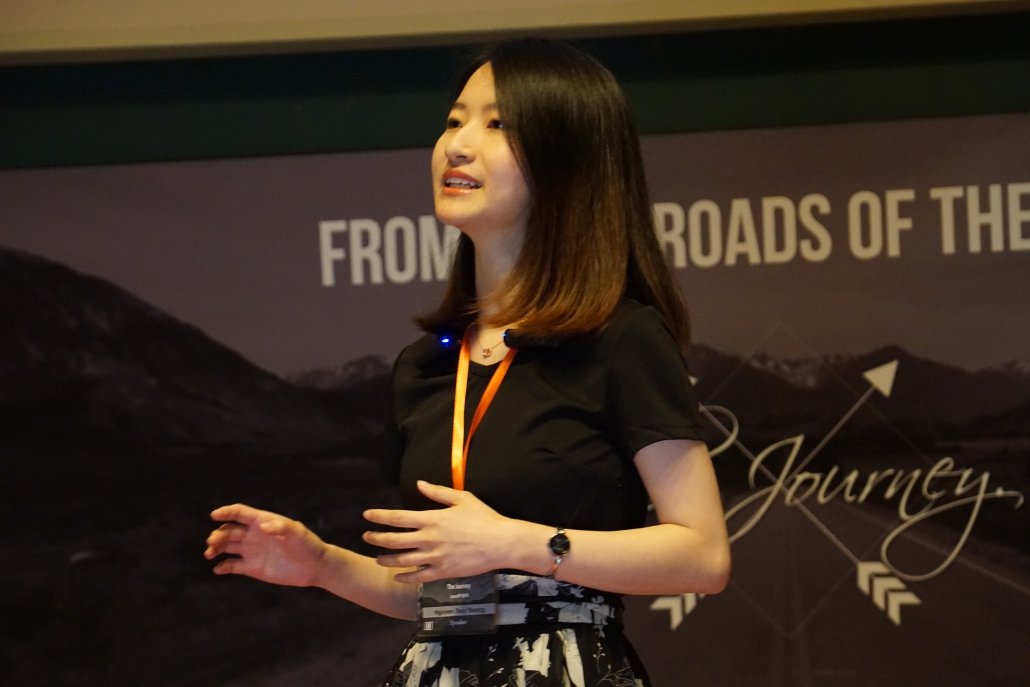
Ryosuke Hanada
“What I found when I tried to talk about Japan”
Ryosuke spoke to the audience about the concept of examining our own cultures. In a diverse multinational environment like IUJ, he found many people asking him questions about Japan that he simply couldn’t answer because he’d never thought about them before. He spoke about the idea that a fish cannot see the water they’re swimming in, and similarly if we’re not consciously observing our cultures there are many things we won’t notice unless questioned about them. Self examination and handling cultural differences are just two things that he has learned during his time at IUJ.
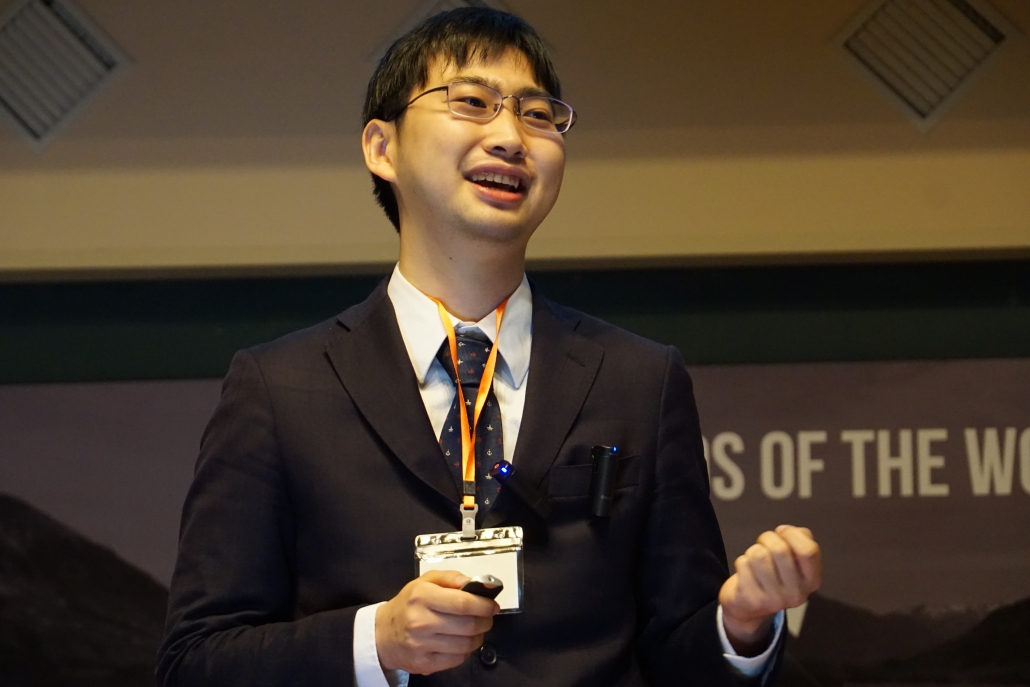
Alisi Olelagi Takayawa
“The Ancient Dialogue of Fiji”
Alisi hails from Fiji, and her speech focused on the Talanoa Dialogue for Climate Ambition. The word talanoa is used in Fiji and across the Pacific, and centers around inclusive participation and dialogue sharing. Alisi spoke about how tribal warfare was once common in her country, and the talanoa principles were used as a means of conflict resolution. The principles often meant that closer ties were formed between warring parties since the essence of talanoa is an environment of mutual respect where all parties are heard. Alisi mentioned there is still a long way to go until the world truly adopts the concept of talanoa, with compromise needed to come up with real world solutions to the issue of climate change.
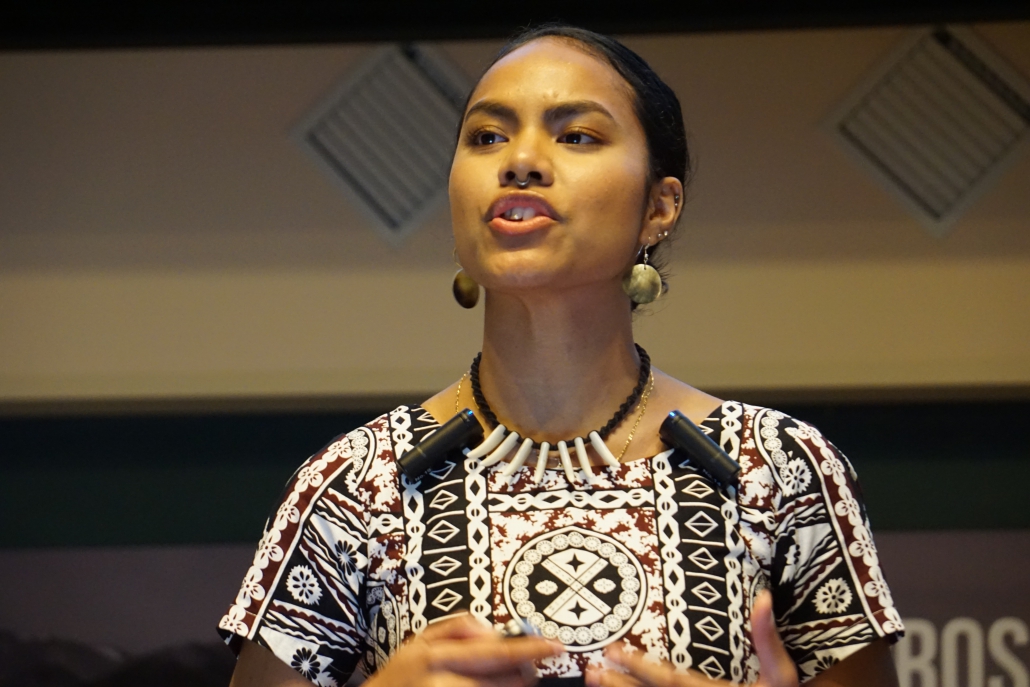
Omer Elbasha
The Happiness Formula
Omer’s speech was originally planned to be on the topic of “The Happiness Formula,” but due to recent events in his home country of Sudan he sought to raise awareness of those instead. People in Sudan’s capital city of Khartoum have been peacefully protesting for the transfer from a military dictatorship to a civilian government, and recently a number of protestors were murdered during a sit-in outside the capital’s military compound. Omer asked that the audience learn more about the current crisis in Sudan and support the country in whatever way possible. A minute of silence was observed for those who lost their lives in the peaceful protest.
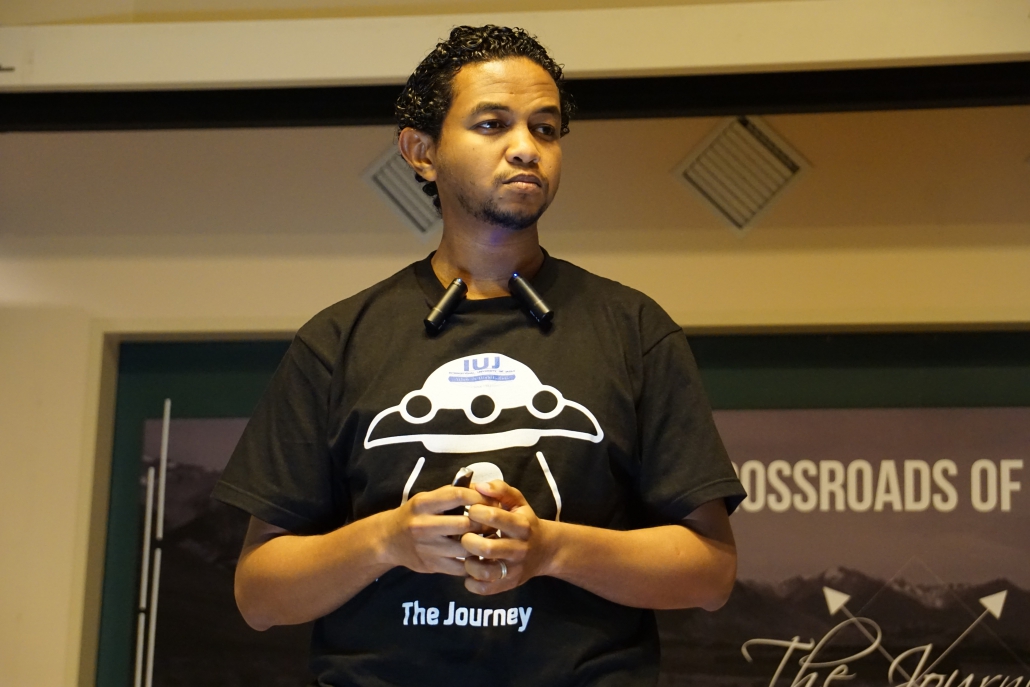
Randriamanarina Meva Wanda
“I am not a hero, I am ordinary”
Meva’s speech focused on how many of us have the idea that to change the world we need to be extraordinary in some way. We may assume we need to have some kind of special skill, be incredibly wealthy, or have a groundbreaking vision for change. She spoke of her own experiences with a youth organization in her home country, where she was given a task to fill a library for a rural school. Many people individually donated used books, local supermarkets got involved, and a company heard about the project and made a larger donation to ensure the library was fully stocked. Meva mentioned that to do extraordinary things you don’t need to be extraordinary at all, you just need to care – so get out there and be the hero!
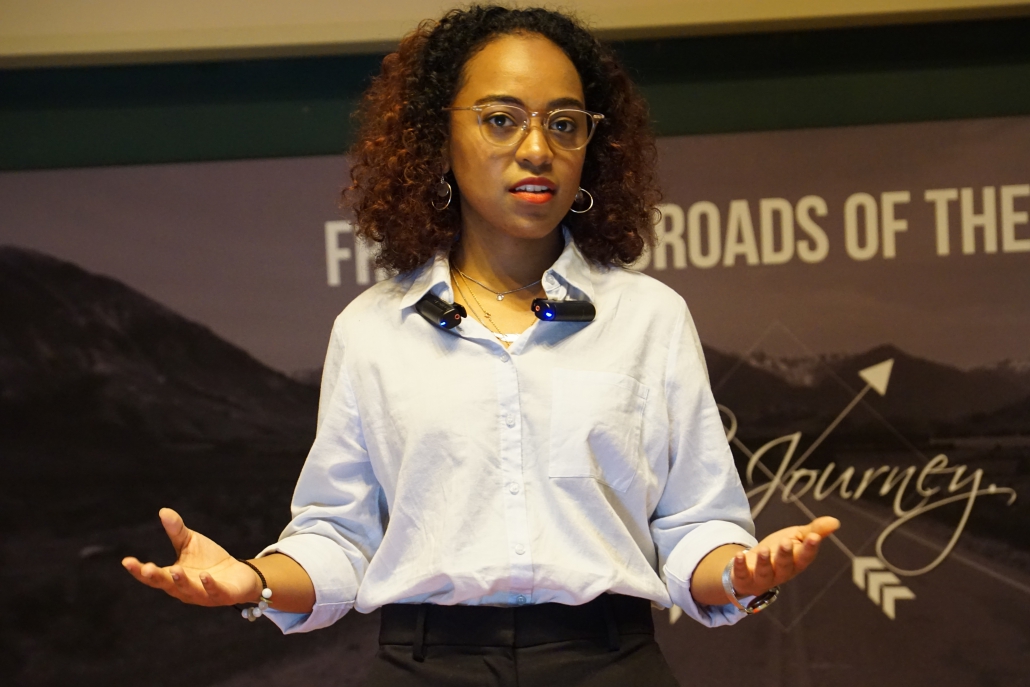
Sijan Thapa
“(Un)belonging”
Sijan spoke to the audience about her own experiences growing up in a small Nepalese town as the child of an inter-caste marriage. She spoke of feeling out of place and wondering whether she could be a part of both groups without fully belonging to either. Our human need for identity and belonging is so important that it features on Maslow’s hierarchy of needs, so what happens when you don’t feel like you belong? Sijan mentioned that her unbelonging has actually become an asset in today’s world and has given her an increased ability to fit into diverse environments and accept differing opinions. The world is changing more and more with migration and globalization, and the common obsession with a singular identity is no longer relevant.
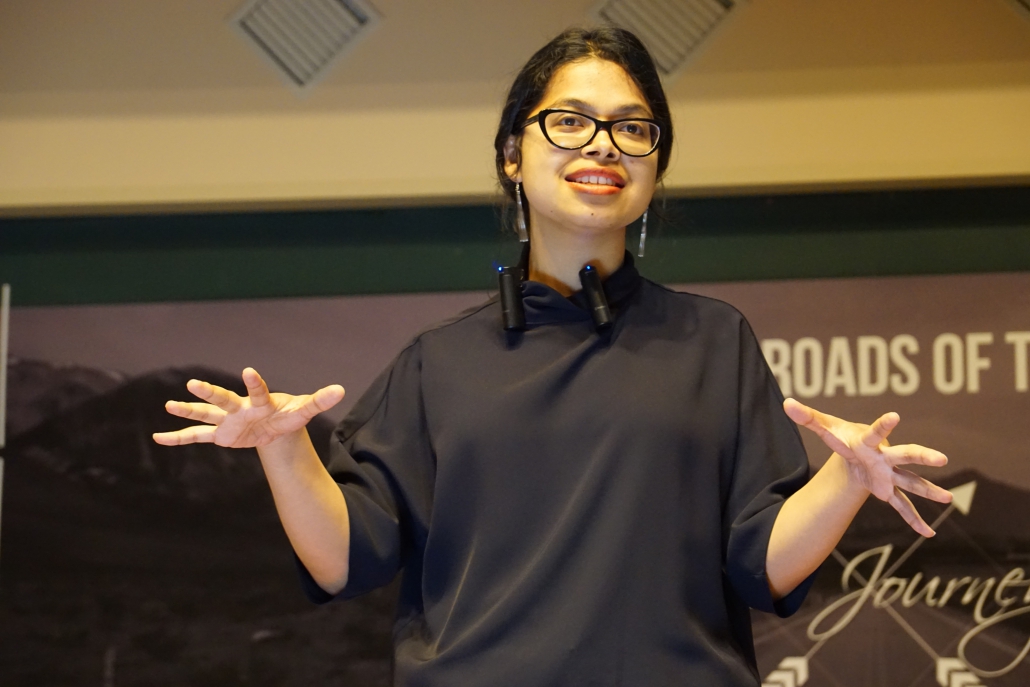
We’d like to thank all of our speakers who took to the stage and shared their personal journeys with us, everyone who came along to listen, and our volunteers who worked tirelessly behind the scenes to ensure the event was a success. IUJ hopes to host more events like this in the future to give our students the chance to share their unique perspectives with their peers and the local community.
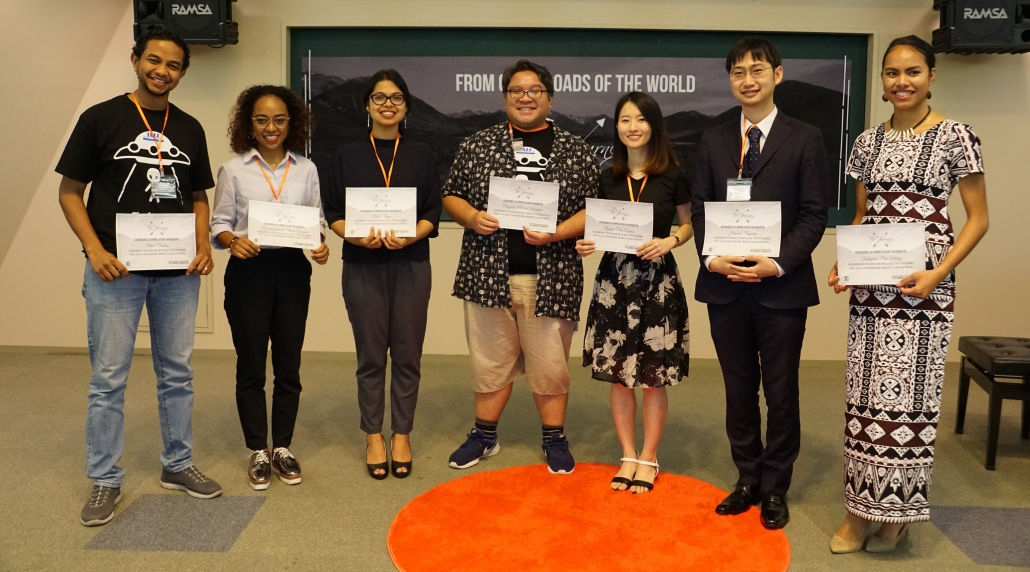
IUJ celebrated Africa Day on May 25th
Africa Day is celebrated on May 25th and commemorates the founding of the Organisation of African Unity in 1963. IUJ celebrated Africa Day with a mini-conference event focusing on the bright economic prospects and investment opportunities across the continent.
The conference theme was The Future is in Africa and included five presentations by IUJ representatives from different African regions – the North, South, East, West, and Central areas. We were also fortunate to have two guest speakers at the event.
North Africa
The North African presentation focused on six key reasons to invest in the region. These included factors such as global market access, strong infrastructure and trade corridors, competitive costs (the region has an average salary of $338 per month), and talented human capital. Many people in North Africa already speak several languages, and there are multiple high-quality universities and research centers for further education.
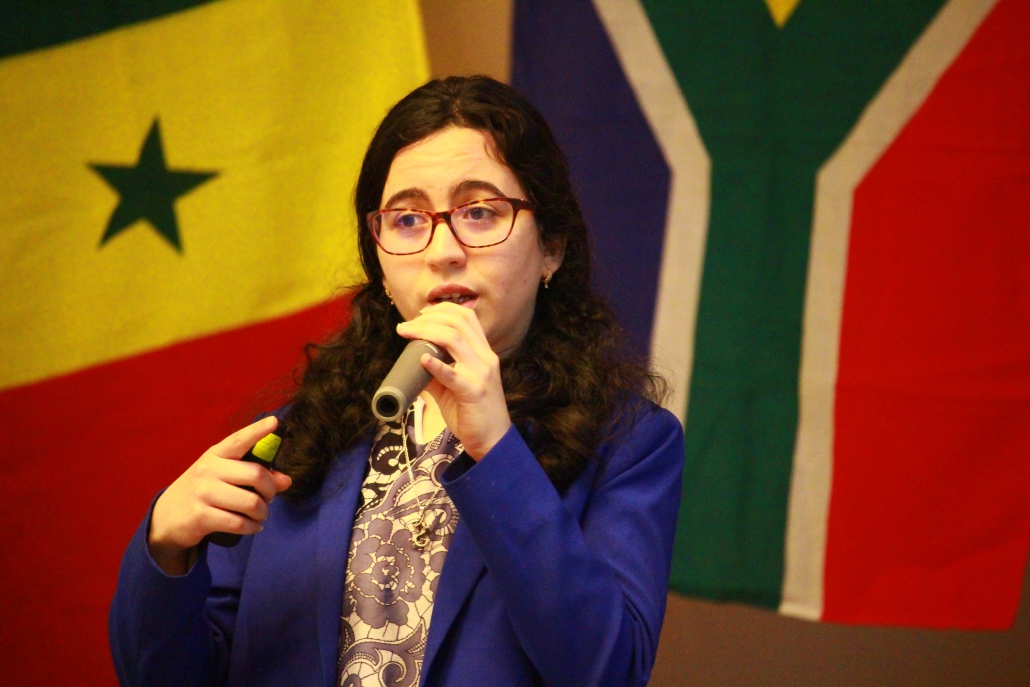
East Africa
The East African economic block has one of the world’s fastest-growing GDPs at around 6.1% annually. This solid growth alongside strong infrastructure, stable economies, and an abundant and inexpensive labor force were highlighted as reasons why the region is worth the investment. Industries that are already showing success in East Africa include agriculture, energy, mining, and tourism. The region’s diverse natural landscapes and UNESCO World Heritage Sites were mentioned as encouraging ways to expand on the already thriving tourism market.
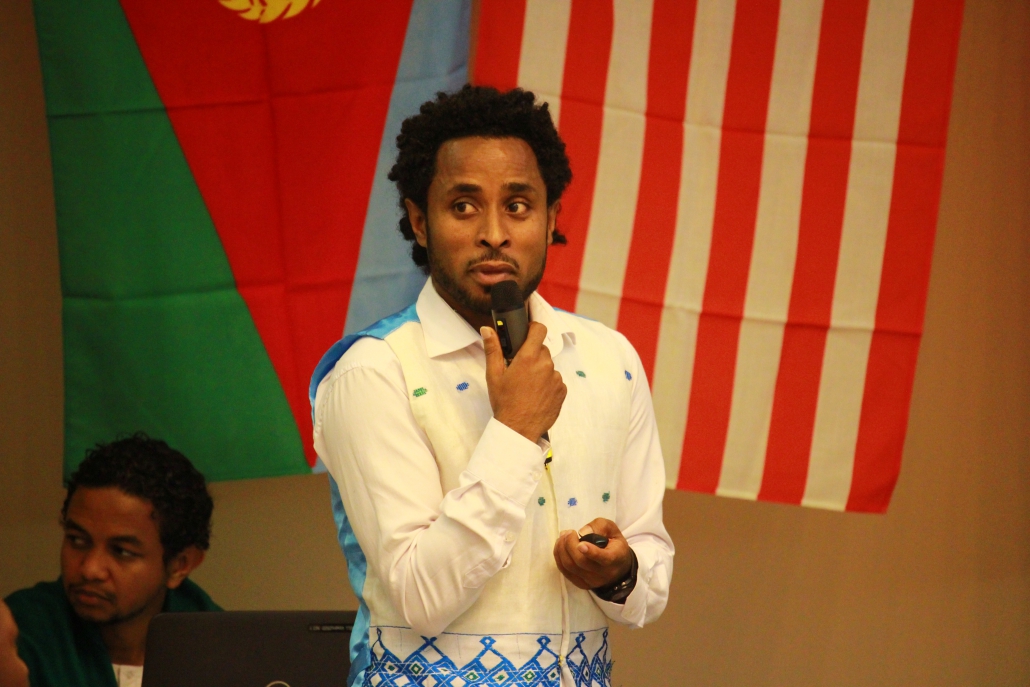
South Africa
The South African regional presentation focused on the positives for potential business investments. This part of Africa has a population that speaks various languages, but the Bantu dialect is a commonality and allows for ease of communication between countries. The area is already home to a number of significant shipping ports including Durban (South Africa), Dar es Salaam (Tanzania) and Walvis Bay (Namibia), and this pre-existing infrastructure makes it convenient for investors to jump right in.
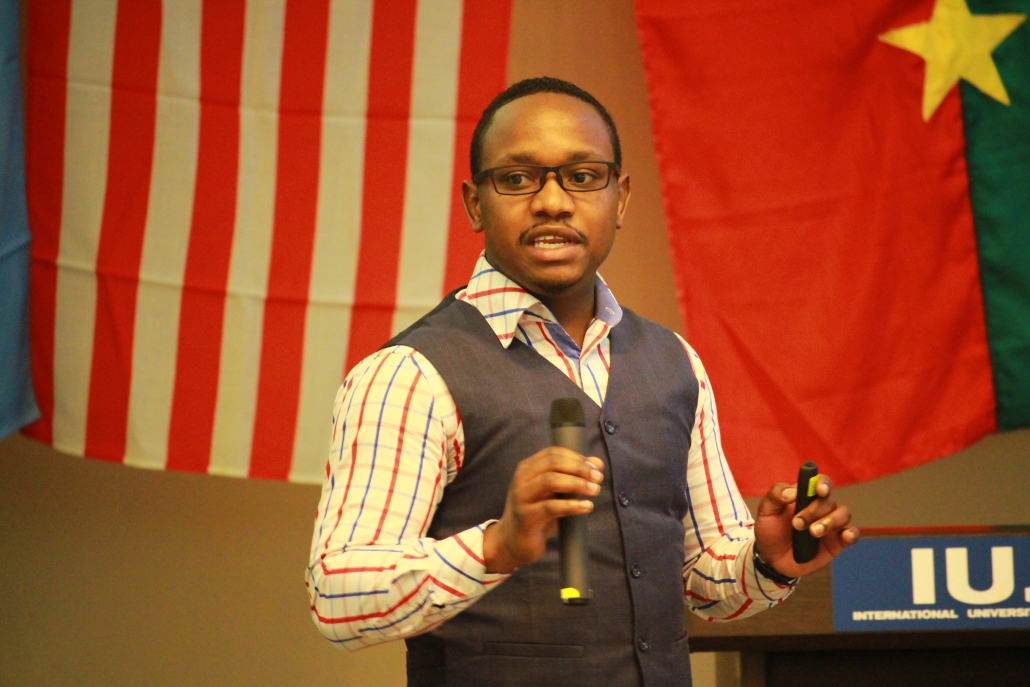
West Africa
West Africa’s presentation centered on the unique features of the region, including free trade and movement, integrated economic activities, and a monetary union covering over 50% of nations in the area. West Africa has a fertility rate of 5.46 and a median age of 18 years, indicating an abundant and work-ready population. Many industries are already thriving, and large companies including Nestle, Unilever, Toyota, and Honda have already had success in this part of Africa.
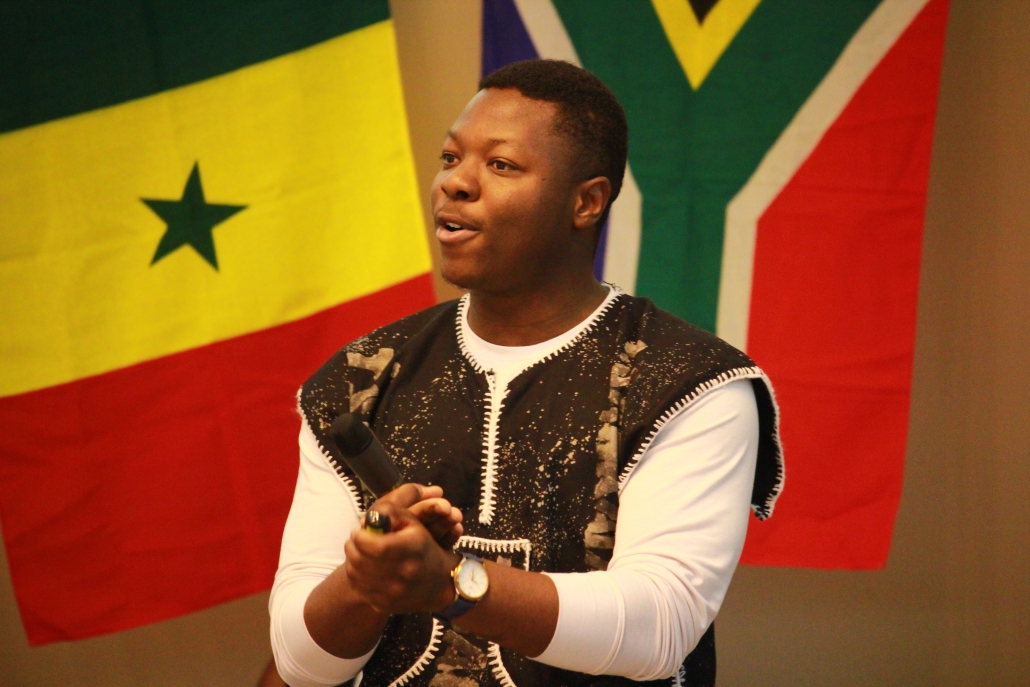
Central Africa
The Central African region is often known as the heart of Africa based on its location, with major industries in oil, mineral and mining deposits, forestry and hydropower. This presentation covered opportunities for entrepreneurship in the area, one of which was tackling the road network. Around ⅓ of roads in the region are unpaved, presenting a challenge for businesses but a promising chance for a potential investment. Agriculture expansion was also cited as a way for entrepreneurs to invest in Central Africa, particularly in the area of poultry farming as the majority of poultry consumed in the region is imported.
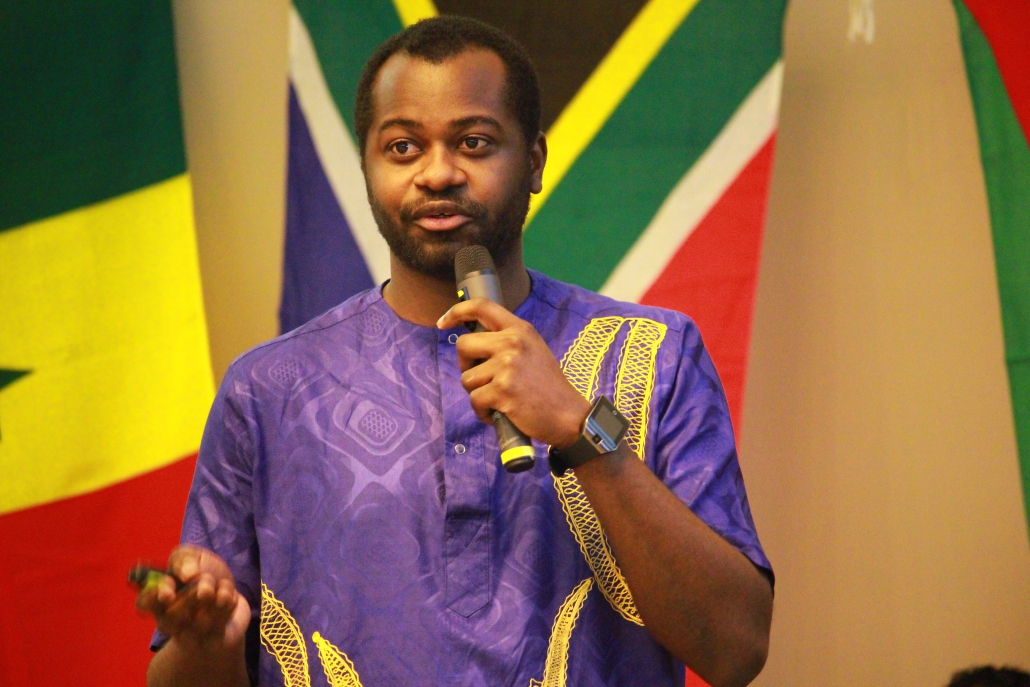
Guest Speaker: Mr. Abubaker Abushiba, Deputy Manager, Energy Systems and Solutions, Toshiba Corporation
Mr. Abushiba has Egyptian-Sudanese heritage, and his speech focused on a comparison between Japan and Africa on several societal issues. Though he mentioned a direct comparison was difficult as Japan is one nation and Africa comprises of 54 countries, it was still interesting to see the strengths that the continent has when it comes to the labor market.
Japan is currently facing the challenges of an aging population, and the impacts this has on the workforce. Japan’s median age is 47 and this is projected to increase to 53 by 2050. In contrast by 2035, the work-ready population in Africa is projected to exceed the rest of the world.
Mr. Abushiba also mentioned that many countries are already seeing the potential to invest in Africa, including strong economic powers like Japan and China.
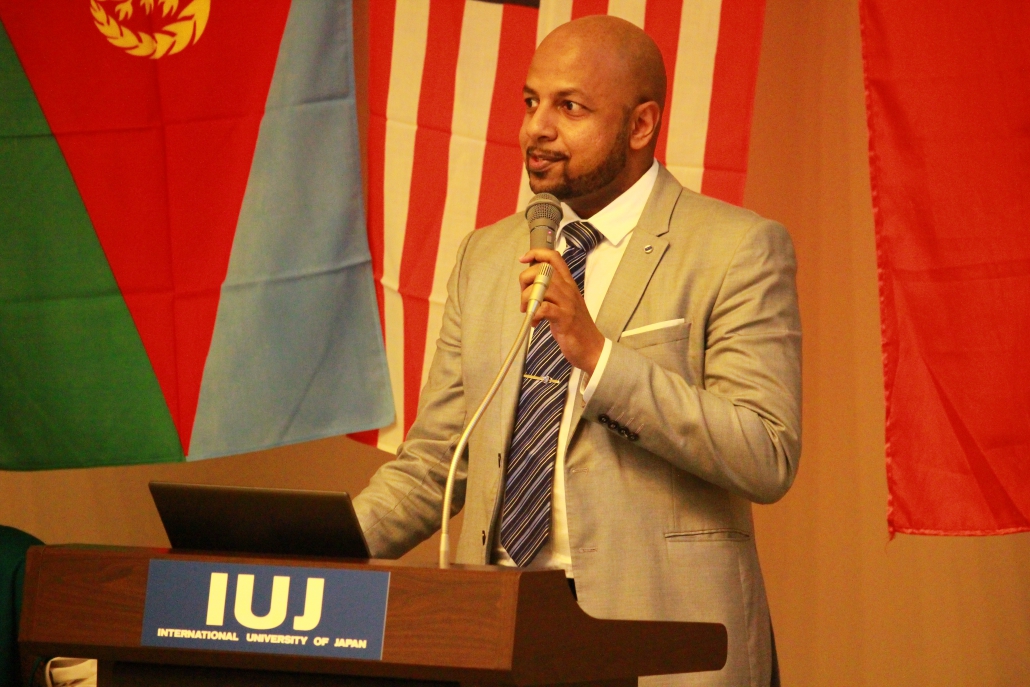
Guest Speaker: Professor Siaw Onwona-Agyeman, Tokyo University of Agriculture and Science
Professor Onwona-Agyeman’s speech focused on adding value to resources that already exist in Africa. He spoke of a lecture he presented about his village in Ghana which has significant gold resources. However, only a small amount of the money from this natural resource stays within the region, as the majority of gold refining occurs outside Africa.
He also spoke also about the importance of water as a resource, particularly in the context of wastewater management. Professor Onwona-Agyeman is currently undertaking a project with Nagoya University and the Durban University of Technology, which involves using algae to clean wastewater.
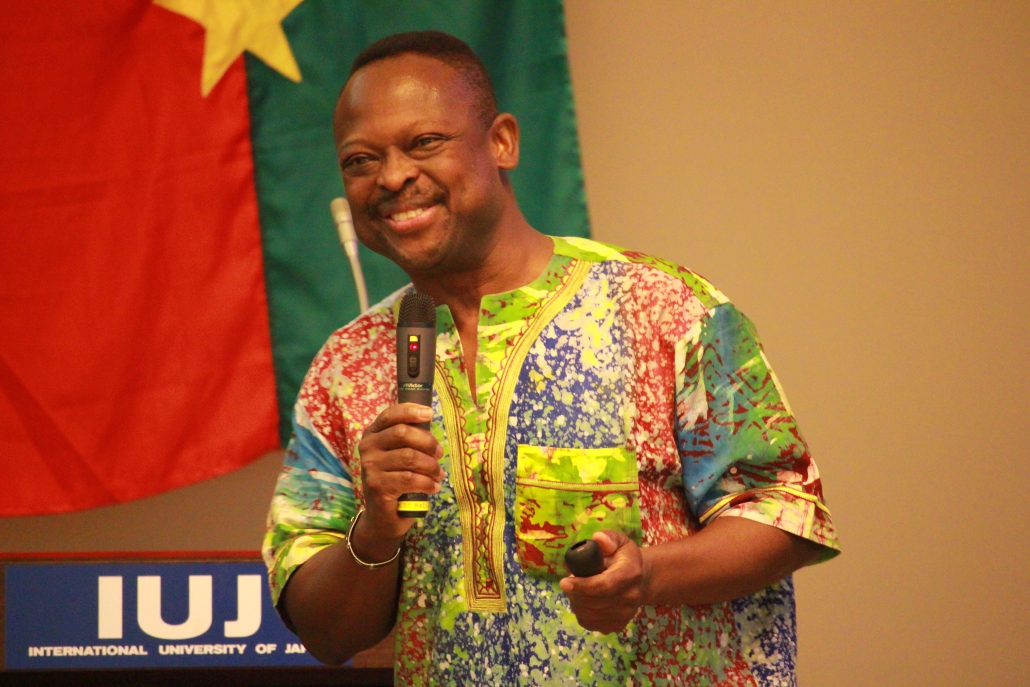
Panel Discussion
After the speeches, a panel discussion took place, featuring our two guest speakers alongside Professor Cooray and Professor Zhang Zhang. The panel discussion allowed a more in-depth analysis of some of the content from the presentations.
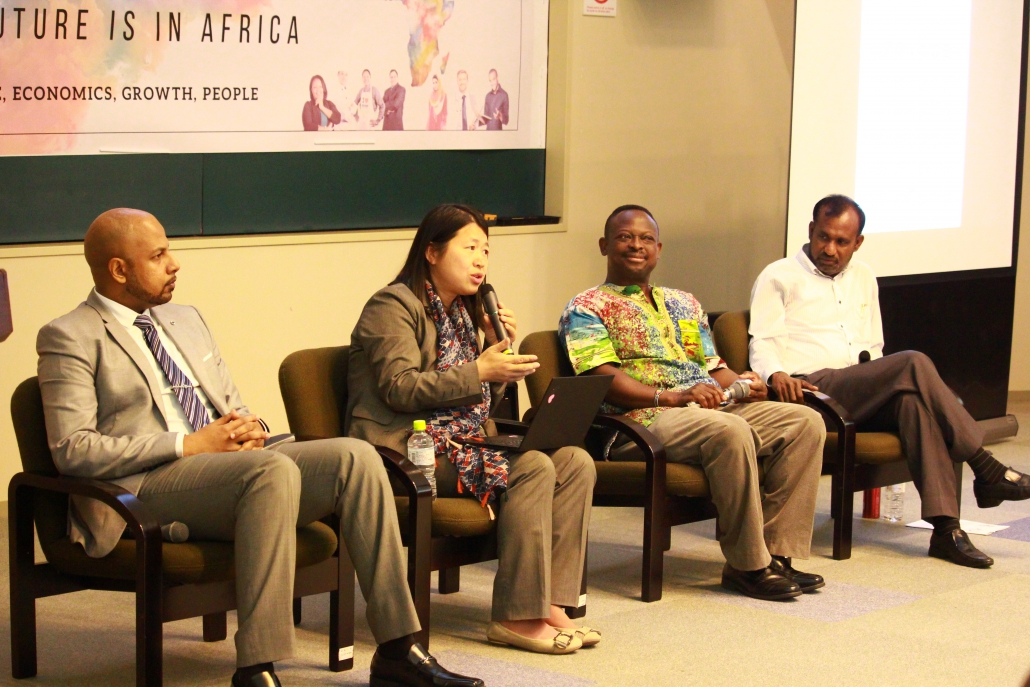
We would like to thank our students and guest speakers who presented, and our faculty who participated in the panel discussion. We’d also like to thank everyone who attended to support the event. IUJ has significant relationships with both JICA (Japan International Cooperation Agency) and the ABE (African Business Education) Initiative, and we look forward to strengthening those as we focus on Africa’s exciting future.
Contact:
Public Relations
Office of Admissions and Career Support
media@iuj.ac.jp
025-779-1539


